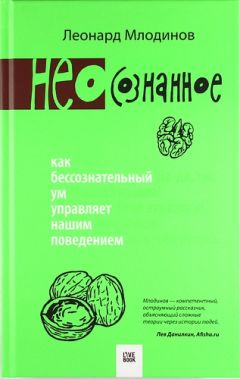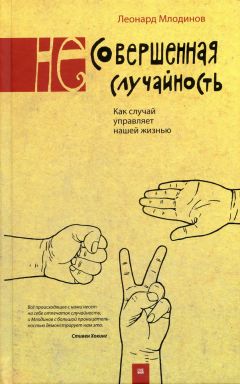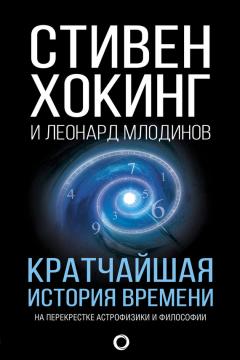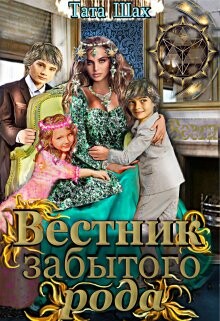Леонард Млодинов - (Нео)сознанное. Как бессознательный ум управляет нашим поведением

Помощь проекту
(Нео)сознанное. Как бессознательный ум управляет нашим поведением читать книгу онлайн
353
Fritz Strack et al., «Inhibiting and Facilitating conditions of the human smile: A nonobtrusive test of the facial feedback hypothesis», Journal of Personality and Social Psychology 54, no. 5 (1988), pp. 768–777; Lawrence W. Barsalou et al., «Social embodiment», The Psychology of learning and Motivation 43 (2003), pp. 43–92.
354
Peter Johansson et al., «Failure to detect mismatches between intention and outcome in a simple decision task», Science 310 (October 7, 2005), pp.116–119.
355
Lars Hall et al., «Magic at the marketplace: Choice blindness for the taste of jam and the smell of tea», Cognition 117, no. 1 (October 2010), pp. 54–61.
356
Wendy M. Rahm et al., «Rationalization and derivation processes in survey studies of political candidate evaluation», American Journal of Political Science 38, no. 3 (August 1994), pp. 582–600.
357
Joseph LeDoux, The Emotional Brain: the Mysterious Underpinnings of Emotional Life (New York: Simon and Schuster, 1996), pp. 32–33; Michael Gazzaniga, «The Split Brain Revisited», Scientific American 279, no. 1 (July 1998), pp. 51–55.
358
Oliver Sacks, The Man Who Mistook His Wife for a Hat (New York: Simon and Schuster, 1998), pp. 108–111.
359
Конфабуляция (от лат. confabulari — болтать, рассказывать) — вид парамнезий, заключающийся в том, что больной сообщает о вымышленных событиях, никогда не имевших места в его жизни. Конфабуляции иногда образно называют «галлюциногенными воспоминаниями». — Прим. перев.
360
J. Haidt, «The emotional dog and its rational tail: A social intuitionist approach to moral judgment», Psychological Review 108, no. 4 (2001), pp. 814–834.
361
Richard E. Nisbett and Timothy DeCamp Wilson, «Telling more than we can know: Verbal reports on mental processes», Psychological Review 84, no. 3 (May 1977), pp. 231–259.
362
Richard E. Nisbett and Timothy DeCamp Wilson, «Verbal reports about causal influences on social judgments: Private access versus public theories», Journal of Personality and Social Psychology 35, no. 9 (September 1977), pp. 613–624; см. также Richard E. Nisbett and Timothy DeCamp Wilson, «Telling more than we can know».
363
K. Aronson et al., «The effect of a pratfall on increasing personal attractiveness», Psychonomic Science 4 (1966), pp. 227–228; M.J. Lerner, «Justice, guilt, and veridicial perception», Journal of Personality and Social Psychology 20 (1971), pp. 127–135.
364
Цитата из романа «1984», пер. В. Голышева. — Прим. перев.
365
Robert Block, «Brown portrays FEMA to panel as broken and resource-starved», Wall Street Journal, September 28, 2005.
366
Dale Carnegie, How to Win Friends and Influence People (New York: Simon and Schuster, 1936). pp. 3–5. [Последнее рус. изд.: Дейл Карнеги. Как завоевать друзей и оказать влияние на людей, М.: Попурри, 2010, пер. Л. Кузьмина. — Прим. перев.]
367
Голландец Шульц (Артур Флегенхаймер, 1902–1935) — американский гангстер, заработал состояние на бутлегерстве во времена Сухого закона. — Прим. перев.
368
Аль Капоне (Альфонсо Габриэль Капоне, 1899–1947) — американский гангстер, действовавший в 1920-1930-х годах на территории Чикаго. Под прикрытием мебельного бизнеса занимался бутлегерством, игорным бизнесом и сутенерством. — Прим. перев.
369
Фрэнсис Краули (1912–1932) — американский убийца-рецидивист. — Прим. перев.
370
College Board, Student Descriptive Questionnaire (Princeton: Educational Testing Service, 1976–1977).
371
…
372
…
373
David Dunning et al., «Flawed self-assessment: Implications for health, education, and the workplace», Psychological Science in the Public Interest 5, no. 3 (2004), pp. 69-106.
374
B.M. Bass and F.J. Yamarino, «Congruence of self and others’ leadership ratings of naval officers for understanding successful performance», Applied Psychology 40 (1991), pp. 437–454.
375
Scott R. Millis et al., «Assessing physicians’ interpersonal skills: Do patients and physicians see eye-to-eye?», American Journal of Physical Medicine & Rehabilitation 81, no. 12 (December 2002), pp. 946–951; Jocelyn Tracey et al., «The validity of general practitioners’ self assessment of knowledge: Cross sectional study», British Medical Journal 315 (November 29, 1997), pp. 1426–1428.
376
David Dunning et al., «Flawed self-assessment».
377
A.C. Cooper et al., «Entrepreneurs’ perceived chances for success», Journal of Business Venturing 3 (1988), pp. 97-108; L. Larwood and W. Whittaker, «Managerial myopia; Self-serving biases in organizational planning», Journal of Applied Psychology 62 (1977), pp. 194–198.
378
David Dunning et al., «Flawed self-assessment»; David Dunning, Self Insight: Roadblocks and Detours on the Path to Knowing Thyself (New York: Psychology Press, 2005), pp. 6–9.
379
M.L.A Hayward and D.C. Hambrick, «Explaining the premiums paid for large acquisitions: Evidence of CEO hubris», Administrative Science Quarterly 42 (1997), pp. 103–127; U. Malmendier and C. Tate, «Who makes acquisitions? A test of the overconfidence hypothesis», Stanford Research Paper 1798 (Palo Alto; Stanford University, 2003).
380
T. Odean, «Volume, volatility, price, and profit when all traders are above average», Journal of Finance 8 (1998), pp. 1887–1934. Обзор Шиллера см. Robert J. Schiller, Irrational Exuberance (New York: Broadway Books. 2005), pp. 154–155.
381
E. Pronin et al., «The bias blind spot: Perception of bias in self versus others», Personality and Social Psychology Bulletin 28 (2002), pp. 369–381; Emily Pronin, «Perception and misperception of bias in human judgment», Trends in Cognitive Science 11, no. 1 (2006), pp. 37–43; J. Friedrich, «On seeing oneself as less self-serving than others: The ultimate self-serving bias?», Teaching of Psychology 23 (1996), pp. 107–109.
382
Милтон Рокич (1916–1988) — американский психолог польского происхождения, начинал психиатром, но большую часть жизни занимался исследованием личных и общественных ценностных установок. — Прим. перев.
383
Vaughan Bell el al., «Beliefs about delusions», Psychologist 16, no. 8 (August 2003), pp. 418–423; Vaughan Bell, «Jesus, Jesus, Jesus», Slate (May 26, 2010).
384
Dan P. McAdams, «Personal narratives and the life story», in: Oliver John et al., eds., Handbook of Personality: Theory and Research (New York: Guilford, 2008), pp. 242–262. [Социальный агент — индивид или группа лиц. которые могут сознательно воспроизводить или трансформировать окружающий их мир посредством своих действий. — Прим. перев.]
385
F. Heider, The Psychology of Interpersonal Relations (New York: Wiley, 1958).
386
Джонатан Хейдт (р. 1963) — американский психолог, профессор Университета Вирджинии, специалист по психологическим основам морали в разных культурах и в контексте разных политических идеологий.
387
Robert E. Knox and James A. Inkster, «Postdecision dissonance at post time», Journal of Personality and Social Psychology 8, no. 4 (1968), pp. 319–323; Edward E. Lawler III et al., «Job choice and post decision dissonance», Organizational Behavior and Human Performance 1В (1975), pp. 133–145.
388
Ziva Kunda, «The case for motivated reasoning», Psychological Bulletin 108, no. 3 (1990), pp. 480–498; см. также David Dunning, «Self-image motives and consumer behavior: How sacrosanct self-beliefs sway preferences in the marketplace», Journal of Consumer Psychology 17, no. 4 (2007), pp. 237–249.
389
Emily Balcetis and David Dunning, «See what you want to see: Motivational influences on visual perception», Journal of Personality and Social Psychology 91, no. 4 (2006), pp. 612–625.
390
Чтобы знать наверняка, что участники не видят обоих животных, ученые включили в эксперимент датчики слежения, которые могли определить по бессознательным микродвижениям глаз, как именно испытуемые толкуют картинку.
391
Albert Н. Hastorf and Hadley Cantril, «They saw a game: A case study», Journal of Abnormal and Social Psychology 49 (1954), pp. 129–134.
392
«Bell laboratories» (известна также как Bell labs, прежние названия — AT&T Bell Laboratories, Bell Telephone Laboratories) — бывшая американская корпорация, крупный исследовательский центр в области телекоммуникаций, электронных и компьютерных систем. Исследовательская лаборатория «Белл» на базе корпорации «AT&T» была основана в 1925 г. — Прим. перев.
393
George Smoot and Keay Davidson, Wrinkles in Time: Witness to the Birth of the Universe (New York: Harper Perennial, 2007), pp. 79–86.
394
Jonathan J. Koehler, «The influence of prior beliefs on scientific judgments of evidence quality», Organizational Behavior and Human Decision Processes 56 (1993), pp. 28–55.
395
См. статью в предыдущей сноске: обсуждение подобного поведения с Байесовской точки зрения. [Томас Байес (1702–1761) — английский математик и священник, сформулировал и доказал одну из основных теорем элементарной теории вероятностей, которая позволяет определить вероятность того, что произошло какое-либо событие (гипотеза) при наличии лишь косвенных тому подтверждений (данных), которые могут быть неточны. — Прим. перев.]
396
Холодный ядерный синтез — предполагаемая возможность осуществления ядерной реакции синтеза в химических (атомно-молекулярных) системах без значительного нагрева рабочего вещества. Известные ядерные реакции синтеза проходят при температурах в миллионы градусов. Множество сообщений и обширные базы данных об удачном осуществлении эксперимента впоследствии оказывались либо «газетными утками», либо результатом некорректно поставленных экспериментов. Ведущие лаборатории мира не смогли повторить ни один подобный эксперимент, а если и повторяли, то выяснялось, что авторы эксперимента, как узкие специалисты, неверно трактовали полученный результат или вообще неправильно ставили опыт, не проводили необходимых замеров и т. д. — Прим. перев.























